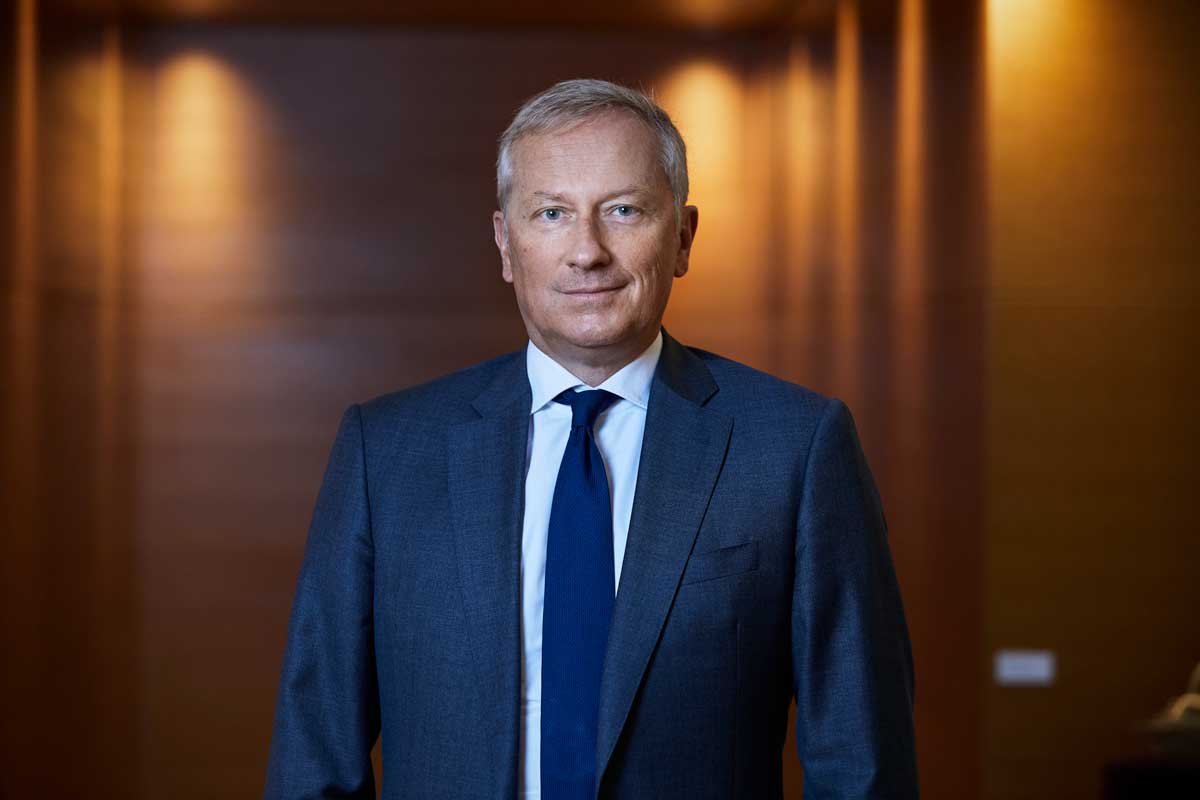What are the key trends that will shape the economy and markets this decade? This question is of the utmost importance, because as long-term investors, we cannot afford to swim against the tide.
Yves Bonzon, Group Chief Investment Officer (CIO) at Julius Baer, explores the main themes an investor must consider in their portfolios.
Pinpointing trends
Last year, the identification of structural forces has proven to be even more challenging than usual. We are at an important inflection point, at the tail end of four decades of disinflation. Society in advanced economies is transitioning from a neoliberal orthodoxy to an era of ‘state-sponsored capitalism’.
The end game is reflation – and no, we are not there yet, despite what the current inflationary episode might suggest. So what can we focus on?
On inflation
The extraordinary nature of the Covid-19 recession has affected supply and demand in a way that makes it very difficult to separate temporary from more persistent inflationary forces.
We believe that supply bottlenecks are a temporary phenomenon. Globalisation is slowing, but not reversing. The same conclusion can be applied to the demand side of the equation, which has seen a surge following unprecedented government support to households. That support is fading, and we do not see radical MMT-style policies being implemented before the next US recession.
Throughout the current decade, structural forces like MMT-inspired policies, aging demographics and the energy revolution will continue to push and pull inflation and interest rates.
In the long term, we believe that developed economies will reflate through the use of unorthodox macroeconomic policies – such as central bank deficit financing or negative taxation – crucially unlocking the demand of the lower deciles of house-hold income distribution, stifled as a result of 40 years of neoliberalism.
On energy
The world has embarked on a major shift towards net-zero carbon emissions and the energy transition is in full swing. The ‘electrification of everything’ has started where new technologies are satisfying our growing energy needs and reducing our dependency on fossil fuels. Even China, one of the biggest energy importers of the last few years, is moving away from fossil fuels and investing heavily into renewables.

This global shift is not going to be a smooth journey. Last year, decreasing investments into fossil fuels, coupled with economic reopening effects as well as some ill-timed political decisions have led to supply chain disruptions, energy shortages, and soaring prices.
Thus, the swift energy transition can act as an inflationary force in the short term.
In the long term, on the other hand, we believe that technological advancements in this space will increase productivity enough in order to act rather disinflationary.
On China
Back in 2017, we introduced the theme of Chinese assets ascending to a stand-alone core asset class. If the two major sources of global growth were technology and emerging markets, China was the only place where the two growth engines converged.
We predicted that China’s leading technology companies, the BATs (Baidu, Alibaba, and Tencent), would rise to the heights of their US counterparts, the FAANMGs (Facebook, Amazon, Apple, Netflix, Microsoft, and Alphabet’s Google).
However, this narrative took a strong hit in late July 2021, after months of government pushback against monopolistic behaviour, when private education platforms were forced to go non-profit. Regulations on the broader internet sector soon followed.
There was no doubt at that point that China will not let capital grow exponentially within its borders. It has shifted focus towards ‘common prosperity’, vying to decrease the income and wealth inequalities that grew while the Chinese economy soared.

has been impaired.
China’s tightening regulatory fist means that the value, not just the valuation, of Chinese equity markets has been impaired. Does that mean that our strategic case for the asset class is dead? For now, we do not think so. We believe the Chinese 60/40 portfolio will still
be a strong contender during this decade – with emphasis on the 40. Moreover, the diversification benefits that both Chinese equities and bonds bring remain strong in a bipolar Sino-US world.
On blockchain
We believe the focus on the volatility of digital coins will prove to be a distraction in the long term. Indeed, Blockchain technology is at the foundation for the next digital and internet revolution, Web 3.0.
One of the prospects of digital asset disruption is the digitalisation of trust. The possible cost and efficiency gains from digital ‘smart’ contracts could revolutionise many businesses. Decentralised Finance (DeFi) protocols, for example, permit financial transactions without the intervention of a centralised player.
The ownership and the transfer of real estate or art could be simplified and made more secure through the use of non-fungible tokens. Moreover, Web 3.0 might displace the winners of the last decade, (ie) social media and web platforms. Internet users will no longer have to rely on big players to build their businesses. They will be able to manage decentralised platforms themselves, incentivised by some mechanism of earning digital tokens.
The investment opportunity set will be deeply affected. If adopted, bitcoin could become the digital version of gold. Companies that are participating in the build-up of the blockchain ecosystem will be in the centre of investors’ attention.
The path to Web 3.0 will not be a smooth one. One important aspect of it is regulation. Western governments are unlikely to let a decentralised financial system run unchecked. Another major concern is security.
While blockchains are inviolable by design, if one loses the private key to their crypto wallet, that value is definitely lost forever. These elements and others are bound to play a big role in the success, degree, and speed of adoption of the disruptive technology.
Yves Bonzon, Group CIO at Julius Baer
Brand View allows our business partners to share content with Arabian Business readers.
The content is supplied by Arabian Business Brand View Partners.









